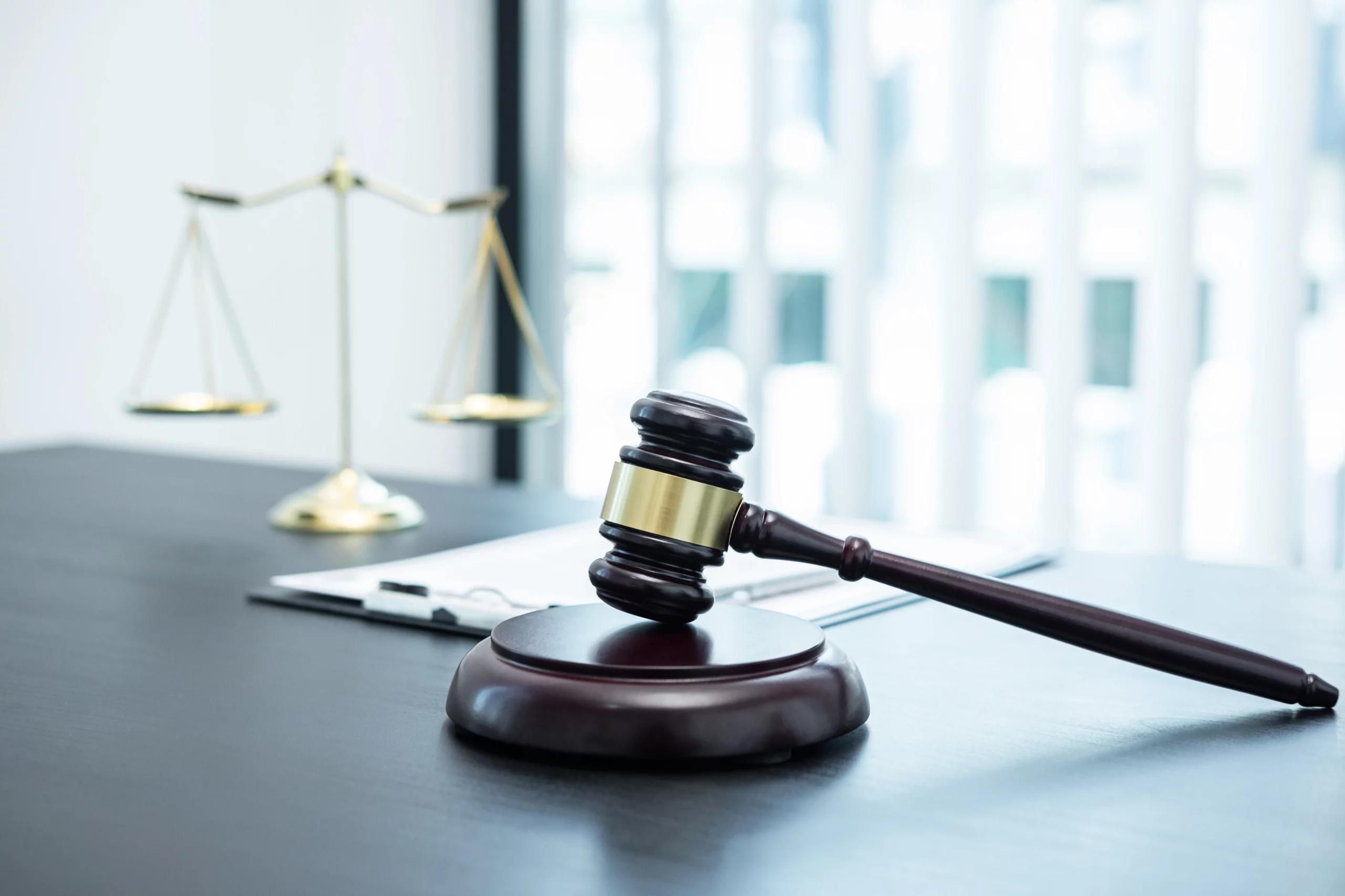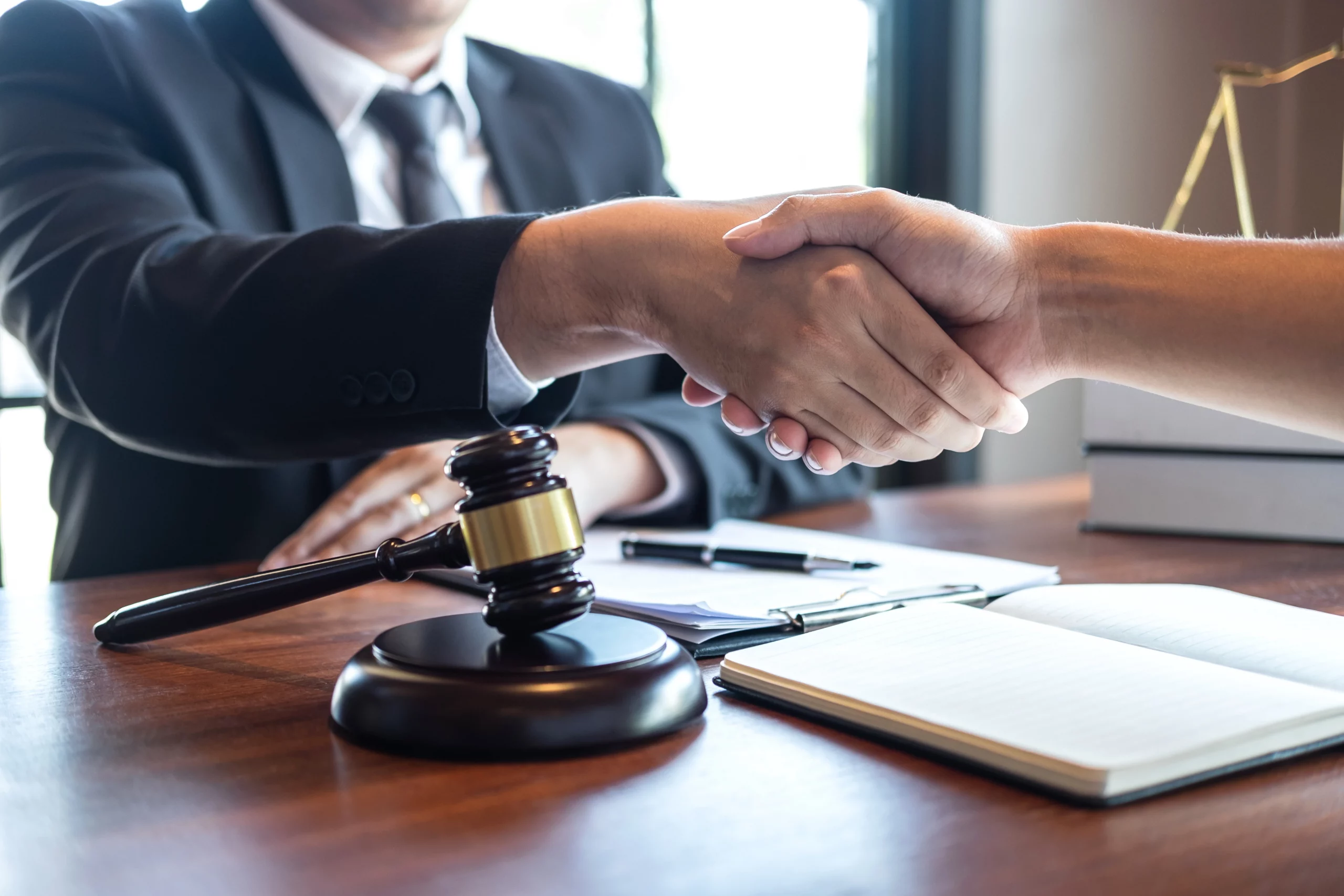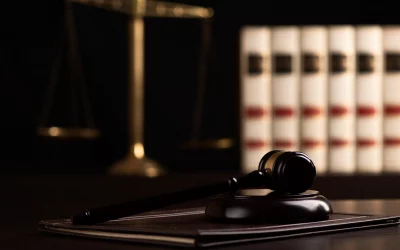In Colorado, mediation is preferred way to settle a personal injury lawsuit.
Mediation is a crucial part of the Alternative Dispute Resolution process (ADR).
Because mediation and other kinds of ADR assist in unclogging the courts, the Colorado legislature and courts strongly support them.
What Is Mediation and How Does It Work?
In personal injury, employment, abuse, harassment, and other civil cases, mediation is a process in which the parties (the plaintiffs and defendants in a lawsuit) meet in one location for anywhere from a few hours to several days to try to resolve their differences without having to spend more time, energy, and money on litigation and/or trial.
What Are the Locations of Mediations?
Mediations are usually held at the offices of one of the mediation service providers. Still, they may also be held in conference rooms, legal offices, or elsewhere where the parties agree to spend time trying to settle their disagreements.
When Does a Case Become Medial?
Although some courts have required early mediation in the past, and some still do, it has been determined that attempting to mediate a case before all parties are ready is ineffective. Because mediation can only resolve a matter if all parties engage enthusiastically, most experienced lawyers wait until the case is ready for settlement. All parties agree that the case is ready for settlement before mediation, unless the courts order it.
The Process of Selecting a Mediator
Attorneys or former judges are the most common mediators. They are paid for by the parties, and the cost of the mediation is normally shared equally. However, the defendant or insurance company agrees to cover the full cost of the mediation.
Most mediators devote a significant amount of their time (or all of their time) to resolving disputes. They must establish a reputation for impartiality and persuasiveness to succeed in their mediation profession. As a result, competent mediators are well-liked by all parties involved in a case and are particularly adept at resolving conflicts.
The kind of mediator to pick in a case is typically determined by the nature of the case and the character of the litigants. Certain mediators are very adept, for example.
When several defendants are in a case, she excels at stitching together settlements. Other mediators may be more attentive to a plaintiff’s emotional needs in sexual harassment or abuse by a psychotherapist case.
Some mediators specialize in certain situations, such as construction accidents, sexual harassment, medical malpractice, aviation, and motor vehicle accidents.
Most experienced lawyers can finally agree on a mediator. However, it may take many names to be sent back and forth until an agreement is reached. One of the best things about mediation is that the parties may pick their mediator in private mediations.
Briefing on Mediation
In general, each side’s lawyers produce a brief for the mediator that summarises the case. Mediation briefs may range in length from five to 100 pages or more, depending on the intricacy of the case and the attorney’s approach.
Each party usually sends a copy of the brief to the opposite side(s). Plaintiffs almost always provide a copy of their brief to the opposing party because they want it to be reviewed by the insurance company and/or corporate defendant who will be determining the amount of money to be paid in the case; however, some attorneys prefer to keep their briefs confidential and only provide them to the mediator. This is permitted. The majority of skilled lawyers prepare extensive and convincing mediation papers.
What to Expect During a Deposition
Suppose you’ve seen enough courtroom dramas on TV. In that case, you may imagine a deposition to resemble an inquisition, with the opposing attorney beating on the table and yelling questions at you, accusing you of lying at every step.
Depositions in civil litigation seldom look like this in real life. After all, they want you to open up and provide as much information as possible, not shut down out of fear or annoyance; therefore, the deposing attorney in your case will most likely be kind, professional, and maybe even nice. The deposition will very certainly not take place in a courtroom but rather in a conference room.
Depositions are usually structured similarly. Typically, the opposing counsel’s attorney will ask you a series of questions, and your responses will be documented in a deposition transcript. Although your attorney won’t provide you answers during a deposition, you may work with him or her to anticipate and prepare for the defense attorney’s inquiries. Those interrogatories, or queries, will usually fall into one of the following categories:
- General personal information: This might contain questions about your identity and history, such as your name, contact information, family composition, profession, and so on.
- Previous physical condition: During a deposition for a personal injury case, the opposing party’s attorney will want to know how you were before your injuries. For example, if you wounded your right shoulder, the attorney may inquire whether you are right-handed or left-handed, as well as if you have had past injuries to your arm, shoulder, or back that may have contributed to your accident or injuries. This deposition section is particularly significant if your damage causes cognitive problems, which is common with brain injuries. Because the effects of a concussion or other brain damage aren’t always evident to the naked eye, it’s critical to create a clear image of your condition before the event. Regardless of the sort of damage you’ve sustained, the way you respond to these questions will determine what your life and health were like before the accident and provide a baseline for your post-injury situation.
- Accident details: The defense counsel would want you to write down everything that occurred in as much detail as possible. They’ll probably ask you things such as, “How did the accident happen?” What were your early thoughts on it? Who was there to see it happen? What kind of weather did you have? What were your thoughts at the time? Did you speak with anybody before, during, or after the accident? What did the talks entail? To prepare for these questions, work with your lawyer to properly prepare this section of your evidence. If you don’t rehearse, it’s easy to become sidetracked throughout your tale and lose your train of thought or leave out crucial facts. Recall that you’ll be under oath at your deposition, so be explicit about what you remember and honest if you don’t remember everything.
- Injury description: You’ll need to provide a full report of your injuries. How did you become hurt? Where did you get your treatment? Were you seen by your primary care physician or a doctor in an emergency room? Have you been admitted to a hospital? Have you had any surgery? What was your experience with follow-up care? Have you followed the doctor’s instructions? Do you get regular treatment, such as physical or occupational? The specifics of your injury are critical because they will help you answer questions later about how the injury has impacted your physical, mental, emotional, and financial well-being.
- Life after the accident: This is your chance to discuss how your life has changed for the worse following the accident. You’ll be able to describe how your life now varies from the lifestyle you used to have and the future you imagined, including any limits, expenses, and emotional suffering you’ve endured as a consequence of your injury.
Your attorney will be your most essential ally and source of assistance during the pre-deposition preparation and the deposition itself. Your lawyer may come to your defense and object if the defense attorney’s questions or actions are out of line in any manner, in addition to preparing you for the defense attorney’s questions, coaching you on how to phrase your replies, and providing a supportive presence throughout your deposition.
The whole deposition procedure is governed by the Federal Rules of Civil Procedure, a collection of legal guidelines. Your lawyer should be familiar enough with these rules to ensure that the opposing party observes them and speaks up if they are broken.
The First Session
Most mediations begin with a meeting of the mediator, the parties, their lawyers, insurance adjusters, and, if necessary, representatives of a defendant business gathered around a big conference room table. The mediator then goes through the nature of the mediation and his or her feelings on mediation, settlement, and what to anticipate during the day. The mediation will make it apparent that the parties make the ultimate decisions with the support of their attorneys.
The mediator will inform everyone in the room that the mediation is private and sign a confidentiality agreement. This implies that nothing mentioned during mediation may be utilized for any reason outside of the mediation. It’s hoped that less posturing and more honest discourse would result.
To begin the mediation, each party will have the chance to present their case verbally in a summary fashion, as is customary. If the parties and insurance adjusters want, they will be given a chance to speak. The concept behind this arrangement is that it will be the sole chance in a situation when everyone will be face to face and able to hear, if not agree with, the other side’s point of view. Rather than provocation, the mediator’s purpose is to aid the parties in diluting the natural tension between them.
This procedure of an opening session may be omitted in certain highly sensitive situations, such as sexual harassment, sexual abuse, or psychological abuse so that the parties do not have to be in the same room with each other, or separate opening sessions may be conducted in front of each party.
Private Caucuses
After the inaugural meeting, the judge spends the rest of the day travelling between rooms, talking to each party individually. To correctly examine the other party’s position and achieve a settlement, the mediator will often seek permission to speak with the other party.
Mediators differ greatly in their manner and approach to private caucuses. Still, most will aim to quietly point out to each party the weaknesses of their argument and the strengths of the other side’s case while appreciating the good features of the side with whom they are meeting.
They will also emphasize the importance of resolving a dispute rather than risking litigation or a trial.
The mediator starts to urge each party to drop their demands and boost their financial proposals at some point, sometimes fast and sometimes slowly, so that the parties may get closer to a resolution.
How long does it take for a mediation to take place?
It is often obvious that the parties are too far apart and unwilling to draw closer together to reach an agreement. In this instance, the mediation is frequently ended, agreeing to return once additional work on the case is completed.
Occasionally, the mediation may need to be extended for a brief amount of time for a corporate or insurance company to gain extra monetary power to resolve the issue.
Mediations are usually successful, and an agreement is achieved by the end of the day, sometimes late into the night.
The Settlement Accord
When a mediation solution is reached, a written settlement agreement is generally established. Each party will sign the settlement agreement, and then there will be a binding agreement that can be enforced in a court of law if one of the parties attempts to back out.
Non-monetary elements may be discussed and added to a settlement agreement, which is a significant mediation component. Defendants in a dispute, for example, typically want secrecy as part of a settlement. In an employment matter, plaintiffs may ask the defendant to give a favourable letter of recommendation. There is no limit to how many non-monetary conditions may be included in a mediated agreement.
When is it possible to mediate a case?
A matter may be mediated at any point throughout the legal process, even before a formal complaint is filed. Early mediations may be beneficial in certain cases, particularly where a clear liability case exists and the corporate or individual defendant wants to avoid a lawsuit’s exposure or shame.
Although there are always exceptions, some organizations have a strategy of seeking to resolve employment conflicts early. However, these types of mediations seldom result in big settlements. Mediation may occur at any point throughout the process, even during the midst of a trial or even after the trial while the matter is on appeal.
Details of the deposit: How to Act in Public
During a personal injury deposition, it’s natural to feel self-conscious about everything you say and do. When you know you’ll be deposed, and your testimony will be recorded, every word, gesture, and movement takes on new meaning, and the stress may make wounded victims feel like they don’t know what to do or say.
For your comfort, here are some suggestions on conducting yourself during a deposition.
- Maintain a professional and courteous demeanour. Arrive for the deposition well-dressed, well-groomed, and on time, and avoid attempting to “break the ice” with small chats or jokes. When the defense attorney starts asking you questions, provide clear, concise, and simple responses to the best of your abilities, making sure to ask clarifying questions if you don’t understand anything.
- Stay true to the facts. The structure of your deposition is question-and-answer, and it is the responsibility of the defense attorney to draw out your testimony via questions, so don’t try to guess what they may want to know or supply additional information they haven’t requested. Instead, just respond to the question clearly and plainly and then wait for the next one. Everything you say will be recorded, so speak clearly and loudly enough for your comments to be correctly captured.
- Take your time. Because this is such a crucial element of your case, you’ll want to be thorough and take your time so that you can provide the most thoughtful and genuine responses possible. You may even hesitate for a minute before answering, allowing yourself time to gather your thoughts and providing your attorney with the option to oppose if necessary. Even if the opposing party’s attorney attempts to throw you off by asking you confusing or imprecise questions, try to stay cool. It’s critical to have a level head.
- Be truthful. Because you’re under oath, you must answer the defense attorney’s questions truthfully; otherwise, you might face harsh repercussions. But part of being honest is admitting when you don’t know something – “I don’t remember” or “I am uncertain” are completely acceptable responses to queries you don’t know the answer to. Even if it’s inadvertent, you don’t want to get caught making a misleading statement since it might jeopardize your case.
- Be well-prepared. The importance of preparation for a deposition cannot be overstated. Prepare for the deposition with the help of your attorney, and treat this time seriously. Request that your attorney role-plays a deposition with you so that you can become used to providing calm, factual answers that are devoid of emotion. Because you’ll be speaking on a topic that may evoke strong emotions and memories, it’s critical to rehearse.
A personal injury deposition does not have to be a nerve-wracking affair with adequate preparation and direction from your attorney. If you’ve chosen to “go it alone” and represent yourself in a personal injury lawsuit, the deposition may be the moment you discover you’re in over your head. If you’re facing a personal injury deposition and haven’t yet engaged an attorney, now is the time to consider whether you truly want to go up against the defense’s legal team without representation.
PERSONAL INJURY MEDIATION CURRENT TRENDS
Early mediation, several mediation sessions, decision-makers who cannot attend, and joint sessions vs private sessions are all factors to consider.
The early stages of mediation
It’s pretty unusual for the defense in a major-injury case to offer an early mediation not long after the matter has gone to trial but before significant discovery has taken place. Early mediation provides various benefits for the defense, including gaining relevant information to analyze the case, sizing up the plaintiff and his or her counsel, and settling the case at a large discount.
There is no difficulty if consumer lawyers are aware of these defensive reasons, and the plaintiffs’ council has three options: First, go to the mediation to settle the issue quickly for a lower price (usually because there are problems with the case that will only be highlighted by discovery). Second, go to the mediation with the idea of not settling right away but rather establishing the framework for a later settlement at a reasonable price. Third, skip the mediation entirely.
When the plaintiff’s counsel fails to foresee probable defense reasons or lacks an appropriate plan for early mediation, the issue develops. Consider the following methods and approaches to avoid attending a mediation that is ineffective in resolving the plaintiff’s case:
- Gather as much information as possible regarding the defense’s viewpoint on the claim and the objective of the mediation from the defense counsel.
- Find out from defense counsel who will be representing the insurer or self-insured party at the mediation. Check with the defense attorney to see whether the claim has been examined by management.
- If liability and damages are particularly strong, communicate to defense counsel that your client is prepared to litigate further if the parties cannot agree on a fair settlement.
- Collaborate with mediators who do extensive pre-mediation preparation, including communication with lawyers, to avoid any misconceptions between the parties concerning the mediation’s objective.
Make the most of the session to build rapport and trust with the other party.
Several sessions of mediation
Significant defense concessions in large personal-injury lawsuits are now often made throughout two or more mediation sessions. This may require the defense to have sufficient knowledge of the facts and the requisite levels of authority to reach a fair settlement. Other times, the defense may be searching for flaws and ways to settle the claim for a lower amount.
Consumer lawyers may make strategic decisions regarding whether or not to allow this. Plaintiff’s counsel may choose not to go through this procedure in certain cases, especially if culpability and damages are extremely substantial. This signals power, but it also prevents productive settlement discussions. In other cases, the plaintiff’s counsel may determine that several sessions are required to get the best feasible settlement. Although patience and discipline are required, the outcomes may need more than one session. Attending many mediation sessions or not attending multiple mediation sessions is ultimately a strategic decision: what is the most effective manner of enhancing a client’s recovery?
Decision-makers presence
For years, insurers have sent either a claims adjuster or a third-party claims administrator with limited power to mediation in minor- to moderate-value personal-injury cases. This technique is still carried out today.
In the past, big instances did not follow the same pattern. That is no longer the case. Recent years have seen missing decision-makers in important cases, especially those involving numerous levels of insurance coverage, according to mediators and consumer lawyers. This makes settlement negotiations during the mediation more difficult and time-consuming. That impact might be a deliberate strategy: a settlement bargain that must pass through many tiers of power, each of which is released in small increments by absent decision-makers outside the mediation process’ direct influence. As a result, fewer defensive sacrifices are made than if all decision-makers are present.
Logistics might also be hampered by the absence of key decision-makers. In any scenario, it is more difficult for consumer lawyers to resolve claims for a reasonable price when decision-makers are not present at the mediation table. In numerous ways, plaintiff lawyers might mitigate the challenges caused by missing decision-makers:
- Speak with defense lawyers ahead of time to determine who will be present at the mediation.
- Determine whether individuals in attendance at the mediation are the primary decision-makers for each level of coverage at risk on the claim.
- Make it plain to defense counsel that the mediation will not occur until all key decision-makers are present.
- Work with mediators who will identify and resolve any possible decision-maker concerns before the mediation via pre-mediation preparation.
New life breathed into old methods.
Mediators are becoming a lot more inventive when settling personal injury claims. Here are a few of the ways that mediators utilize to resolve personal injury disputes today:
Joint meetings: In large situations, the insurer’s view on the plaintiff and the claim may be changed by a joint session skilfully choreographed by the mediator. A combined session in which the plaintiff’s attorney provides a concise, well-organized, and emotionally effective PowerPointTM of the major culpability facts, injuries, damages value, and impact on the plaintiff and his or her family, for example, may have significant outcomes. When the mediator speaks privately with the insurance agent after the session, presentations like these work their magic. A combined session may also allow the plaintiff or the family to be viewed and heard by the adjuster, which might be crucial to the adjuster’s case appraisal. The plaintiff must be well-prepared and present successfully for the joint session to operate.
Private meetings: In high-profile cases, mediators use private sessions to listen to the plaintiff, create rapport, and guide the plaintiff through the process of negotiating the case’s worth. Mediators utilised private sessions to leap to the numbers dance in the earlier days. In big personal-injury situations, this does not function effectively because the plaintiff, who has experienced a serious injury or the loss of a loved one, need time to absorb his or her sorrow and objectively consider the bargaining process. To bring the plaintiff to the point where he can bargain rationally via his attorney, mediators employ patience, empathy, and strong listening skills. In addition, the mediator might examine unreasonable assumptions about the case through private meetings with the plaintiff and defense parties. Other than the classic way of “that’s not going to happen and here’s why,” today’s mediators utilize several styles and tactics for reality checking.
Preparation for premeditation: Successful mediators spend a lot of time before the mediation examining the papers and speaking with the attorneys. This kind of preparation may provide the mediator with crucial information for structuring a successful mediation session. The mediator may learn, for example, whether the mediation should begin in a joint session or private sessions; who made the last move in the negotiation; who should make the first move at the mediation; the material issues on which the parties agree in principle; those issues on which agreement has proven elusive; the personalities of the participants; who the key decision-makers are; what flash points to avoid; jury verdicts research; coverage issues; discovery I Follow-up with vigour: It is fairly unusual for mediation to come to a halt in significant cases. Good mediators are unafraid of stalemate; in most circumstances, it is unavoidable; the only issue is how to get through it. More mediators are now comfortable with the parties ending the session to complete tasks necessary to an eventual settlement, such as medical examinations, document review, expert consultations, further insurer management review, and depositions if all of the tools in the mediator’s toolbox fail to yield a settlement at the end of the day. The mediator then contacts the lawyers at the proper time to see whether there is any room for additional discussion.
Today’s greatest mediators work tirelessly to resolve disputes, frequently at no extra cost to the parties.
Personal-injury claims are now mediated using a combination of traditional and modern methods and approaches. However, the keys to successfully mediating personal-injury cases remain the same for both mediators and attorneys: preparation and strategy.
Specializes in situations involving severe bodily and psychological injuries and wrongful death. The company handles cases including catastrophic damage, traumatic brain injury, elder abuse, sexual abuse and harassment, post-traumatic stress disorder, and psychotherapist abuse. For additional information or a free online consultation, please call 719-300-1100.










